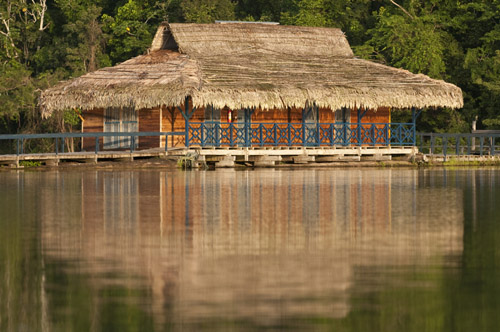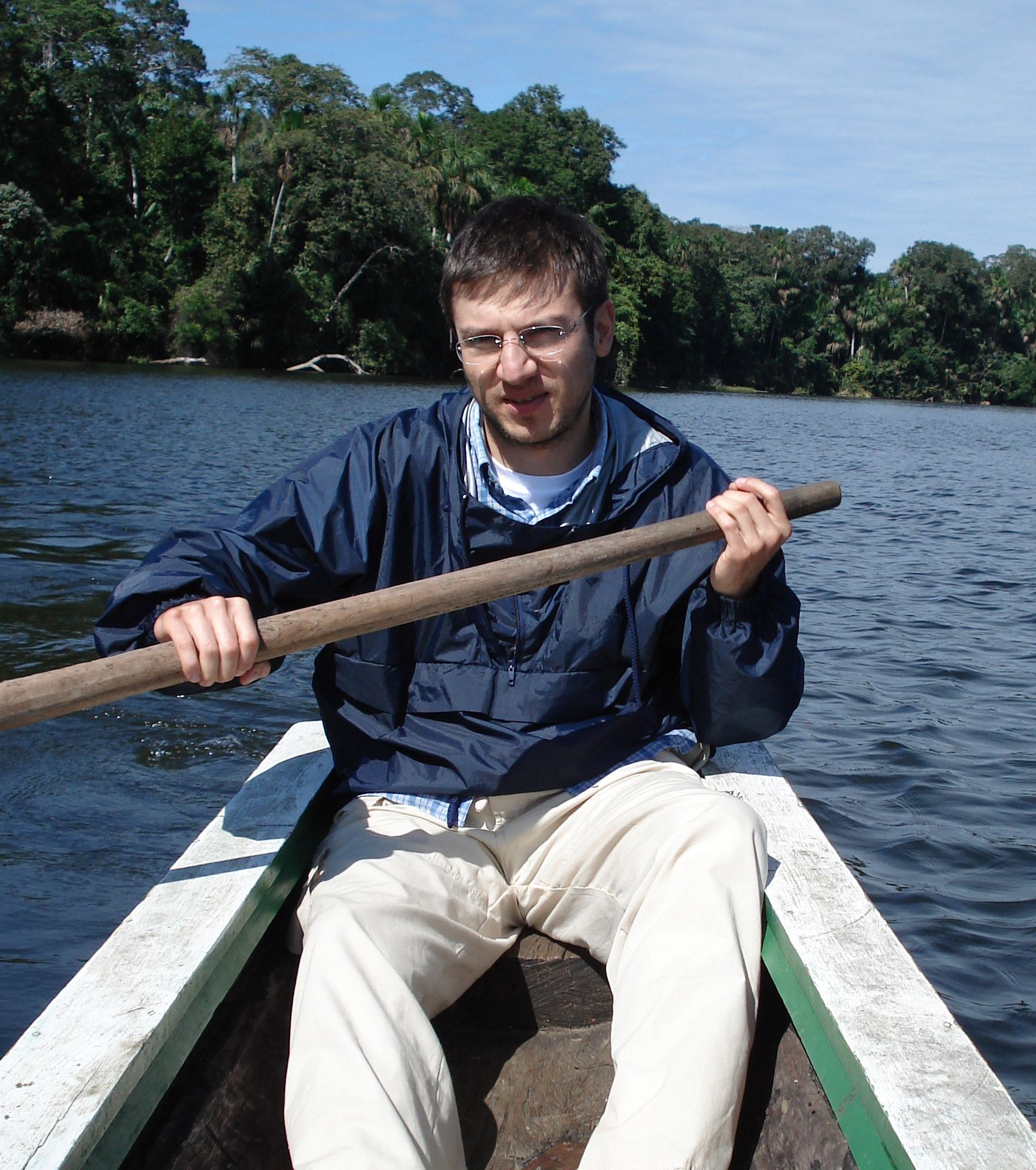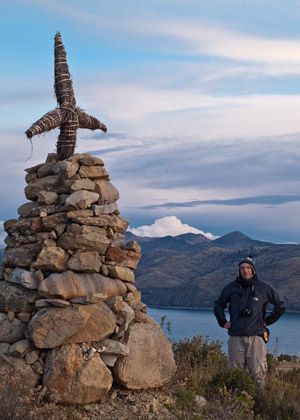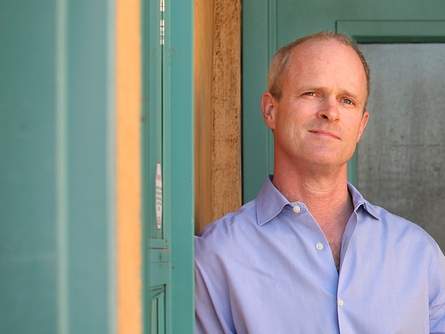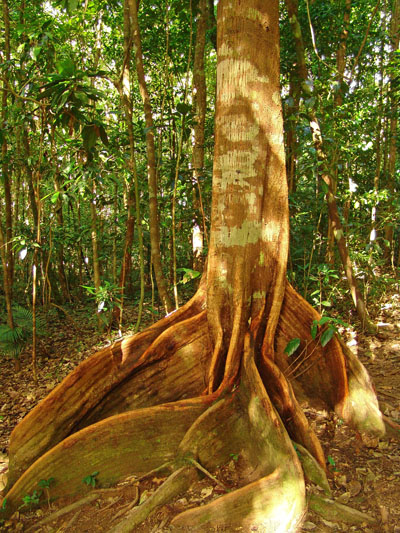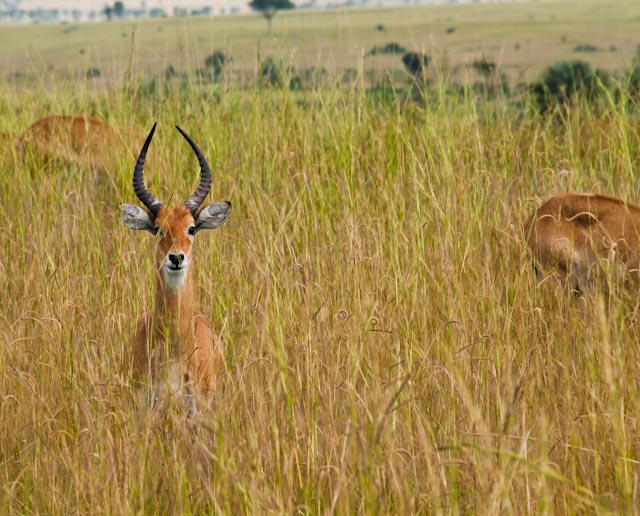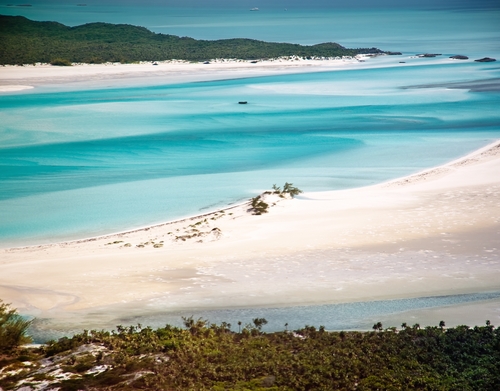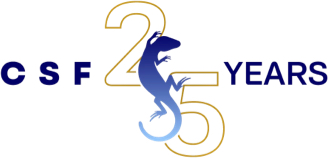News
Khan Academy is an extraordinary phenomenon in education. In just a few years, the organization has posted thousands of short videos with instruction on an ever-widening array of topics. Including economics. We like their economics videos so much they are now all available on CSF's website as well as the Khan site.
CSF course graduates frequently ask us to refresh their memory on a particular topic - "What exactly is consumer surplus?" - and Mr. Khan now is available to explain. The videos average around 10 minutes and use very helpful graphics to explain the concepts.
In April, CSF held the third workshop of the CSF Project for Tourism in Indigenous Peoples' Lands Paiter-Surui and Parintintin. We discussed the final details of tours and infrastructure, the market study data, and the financial viability of the businesses. The project aims at developing a business plan for tourism for each indigenous area. The process of preparing the plan is done in a participatory manner, with decisions made collectively. In addition to discussing the business aspects, the CSF workshops also provide an opportunity to empower indigenous people. As each stage of the project is completed, participants enjoy a greater level of community involvement.
Born in La Paz, Bolivia, Alfonso Malky Harb first came to CSF as a student in 2006, where he participated in the Madidi National Park course on economic tools for conservation. Two years later, Alfonso joined CSF as an Economic Analyst in the Bolivian office. With a Master's degree in Agricultural Economics from Catholic University of Chile, an undergraduate degree in Economics from the Bolivian Catholic University, and a diploma in Environmental and Social Research Methods from PIEB (Programa de Investigación Estratégica en Bolivia), he was a natural fit for CSF.
Born in La Paz, Bolivia, Alfonso Malky Harb first came to CSF as a student in 2006, where he participated in the Madidi National Park course on economic tools for conservation. Two years later, Alfonso joined CSF as an Economic Analyst in the Bolivian office. With a Master's degree in Agricultural Economics from Catholic University of Chile, an undergraduate degree in Economics from the Bolivian Catholic University, and a diploma in Environmental and Social Research Methods from PIEB (Programa de Investigación Estratégica en Bolivia), he was a natural fit for CSF.
Born in La Paz, Bolivia, Alfonso Malky Harb first came to CSF as a student in 2006, where he participated in the Madidi National Park course on economic tools for conservation. Two years later, Alfonso joined CSF as an Economic Analyst in the Bolivian office. With a Master's degree in Agricultural Economics from Catholic University of Chile, an undergraduate degree in Economics from the Bolivian Catholic University, and a diploma in Environmental and Social Research Methods from PIEB (Programa de Investigación Estratégica en Bolivia), he was a natural fit for CSF.
Born in La Paz, Bolivia, Alfonso Malky Harb first came to CSF as a student in 2006, where he participated in the Madidi National Park course on economic tools for conservation. Two years later, Alfonso joined CSF as an Economic Analyst in the Bolivian office. With a Master's degree in Agricultural Economics from Catholic University of Chile, an undergraduate degree in Economics from the Bolivian Catholic University, and a diploma in Environmental and Social Research Methods from PIEB (Programa de Investigación Estratégica en Bolivia), he was a natural fit for CSF.
Highlighting the announcement of the MacArthur Award for Creative and Effective Institutions, the front-page article profiles the history of CSF and the importance of our work globally.
“We are recognizing organizations that are doing phenomenal work, and often under the local radar screen,” Steve Cornelius of the MacArthur Foundation said. “They have identified a niche. They have simply been the main organization working in getting these economic principles out.”
Read the article here
Image credit: Christopher Chung/The Press Democrat
Today the John D. and Catherine T. MacArthur Foundation named Conservation Strategy Fund as a recipient of the MacArthur Award for Creative and Effective Institutions. The award recognizes CSF’s innovative work using economics to conserve the world’s most important ecosystems and provides us with a grant of $750,000. The MacArthur Award honors and supports our efforts to creatively address the the loss of unique natural ecosystems by equipping front-line environmentalists with skills to calculate and economic costs and benefits of solutions and thereby come up with answers that will actually work.
CSF's Irene Burgués and John Reid traveled to Uganda in November to establish our first long-term program in Africa. The program's initial focus will be on conserving ecosystems in the context of major infrastructure development in the Albertine Rift region shared by Uganda, Rwanda, Democratic Republic of Congo and Tanzania. The region is home to cloud forests, lowland rain forests and savannas, along with active volcanoes and endangered wildlife such as the mountain gorillas. CSF will work with government and NGOs to minimize the impact of new roads, dams and oil on these fragile resources. We are fortunate to have the partnership of the Uganda National Environmental Management Authority (NEMA) as we begin this process.
By investing in ecotourism, Belize has protected more than a third of it's total land area, as well as about 13 percent of it's marine area. As a world leader in conservation, CSF's Venetia Hargreaves-Allen believes the Bahamas could learn significantly from Belize's success. Formerly the principal investigator for the Marine Managed Area Economic Valuation in Belize with Conservation International, Hargreaves-Allen turned her focus to the Bahamas in a marine management study conducted in 2010. She recently presented her findings at a public meeting at the Bahamas National Trust.


